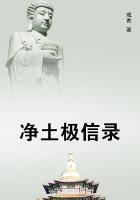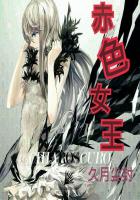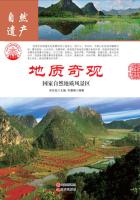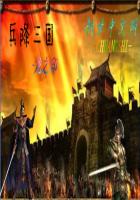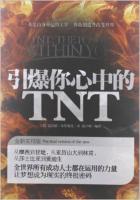Amongst some of the most noted authorities on Canon Law during the seventeenth and eighteenth centuries were /Benedict XIV./ (1675-1758)many of whose treatises are regarded as standard works till the present day; /Pirhing/ (1606-1679), a Jesuit, professor at Dillingen and Ingolstadt and well known as a theologian and canonist;/Reiffenstuel/ (1641-1703), a Bavarian Franciscan for some time professor at Freising, the author of several theological works, and unequalled as a Canonist in his own day; /Van Espen/ (1649-1728)professor at Louvain, a strong supporter of Gallicanism and Jansenism, whose great work /Jus Canonicum Universum/ is marred by the pro-Gallican proclivities of its author; /Schmalzgrueber/ (1663-1735), a Bavarian Jesuit, professor of Canon Law at Dillingen and Ingolstadt, who in addition to treatises on such subjects as Trials, Espousals, Matrimony, and the Regular and Secular Clergy, published a work covering the entire Canon Law (/Jus Eccl. Universum/), and the Italian /Lucius Ferraris/ (d. 1763), whose /Prompta Bibliotheca Canonica/ went through several editions in the author's own lifetime and has been republished more than once since his death (latest edition 1899).
In the department of sacred oratory the palm must undoubtedly be awarded to the French Church. /Jacques-Benigne Bossuet/[5] (1627-1704), in many senses the greatest of the French preachers, was the son of a lawyer at Dijon. Even in his early youth he was remarkable for his mastery of the Bible and classical authors. He studied at the University of Paris, and after remaining two years under the spiritual education of St. Vincent de Paul was ordained a priest in 1662. He returned to Metz, in the cathedral of which he held a canonry, and where his abilities as a preacher and a controversialist soon attracted attention. He was appointed preceptor to the Dauphin of France, an office which he held from 1670 to 1681, when he was consecrated Bishop of Meaux. As bishop he took part in the Assembly of the French Clergy (1681-82) and, though himself not such an extreme defender of Gallicanism as many of his contemporaries, he is credited generally with having been the author of the famous Declaration of the Clergy, known as the Articles of the Gallican Church. At the invitation of Louis XIV. he composed a treatise in defence of these articles, /Defensio Declarationis/, etc., published after his death (1730). As an orator Bossuet was far ahead of the preachers of his time, and as a writer and controversialist he had few equals. His untiring energy and ability are vouched for by the number of able works that proceeded from his pen. Of these the most instructive and best known are the /Discours sur l'histoire Universelle/ (1681), and the /Histoire des Variations des Eglises Protestantes/ (1688-89). His want of firmness, however, in his relations with the court, leading him as it did to show a sympathy which he could not have felt in his heart towards Gallicanism, his failure to move a finger to stay the ravages of Jansenism, his want of zeal for the spiritual care of his diocese, in marked contrast with the energy which he displayed when seeking to score a personal triumph over Fenelon and other less known adversaries, cannot be forgotten by any one who wishes to arrive at an impartial estimate of Bossuet's character.
/Fenelon/[6] (1651-1715), the great contemporary and rival of Bossuet, was sent as a youth for his education to the Universities of Cahors and Paris. Later on he returned to the seminary of Saint Sulpice then presided over by M. Tronson the superior of the Sulpicians, to whose wise and prudent counsels the future Archbishop of Cambrai was deeply indebted. After the revocation of the Edict of Nantes he was sent to preach to the Huguenots, upon whom his kindness and humility made a much more lasting impression than the violence resorted to by some of the officials of Louis XIV. Later on he was appointed preceptor to the Duke of Burgundy, grandson of Louis XIV., for whose education he composed the /Fables, Telemaque/, etc., and on the completion of his work as tutor he was nominated Archbishop of Cambrai (1695). Hardly had he received this honour than he was involved in a controversy on Quietism, which controversy cost him the friendship of Bossuet and the patronage of Louis XIV., by whom he was banished from the French court. But Fenelon found much at Cambrai to console him for what he had lost in Paris. In every sense of the word he proved himself a model bishop, visiting his parishes regularly, preaching in his cathedral and throughout his diocese, and always affable to those who came in contact with him whether they were rich or poor. Unlike Bossuet he never feared to speak out boldly against Jansenism and Gallicanism. As a preacher and a master of French literary style he was inferior to Bossuet, but as a man and as a bishop he was incomparably his superior. In addition to his works on literary and political questions he wrote voluminously on theology, philosophy, and the spiritual life.
The opposition to Scholasticism, that manifested itself in the writings and teaching of so many Humanists, grew more accentuated in the universities, especially after the establishment of ecclesiastical seminaries had led to the withdrawal from the universities of a great body of the clerical students. For centuries philosophy and theology had gone hand in hand, the former supplying the rational basis for the acceptance of revelation, the latter providing the necessary restraint upon the vagaries of human thought. The principal of individual judgment, proclaimed by the early Reformers and received so enthusiastically by their followers, had as its logical consequence an exaggeration of the powers of the human mind at the expense of authority, with the result that scepticism, atheism, and materialism, found favour in learned circles.

